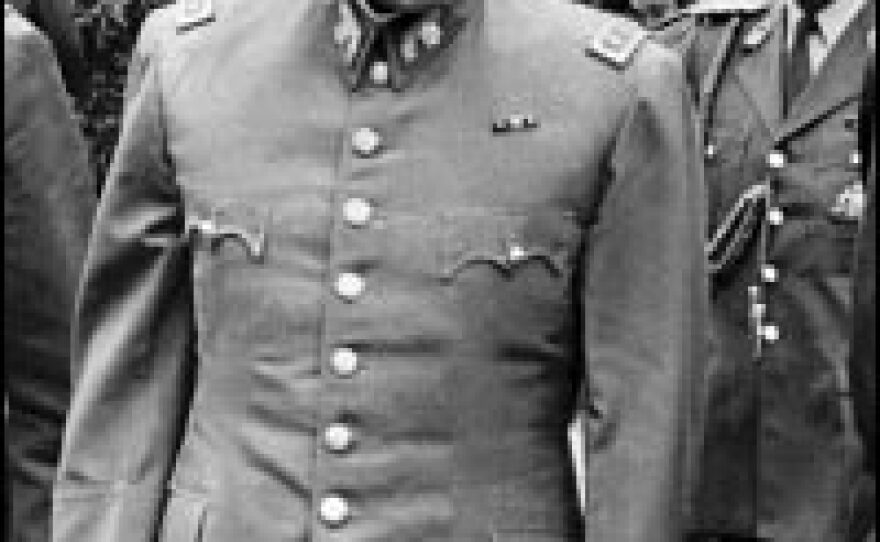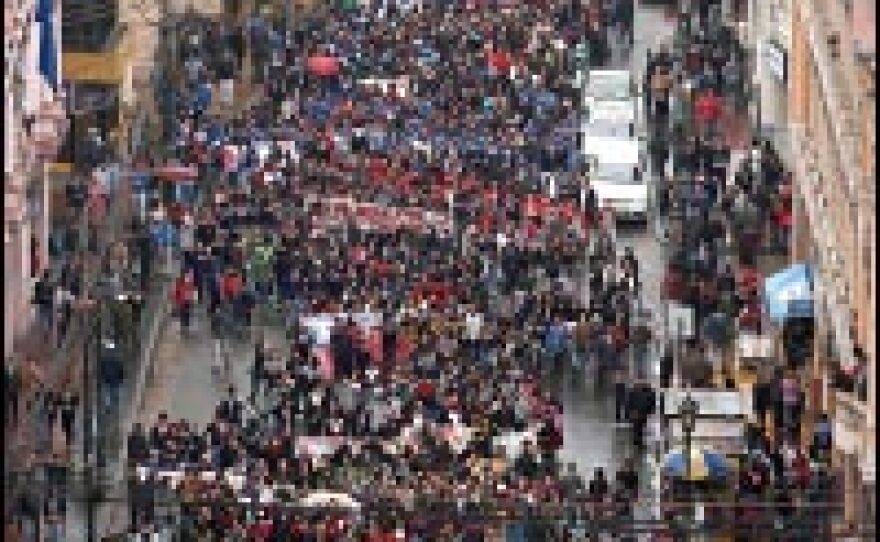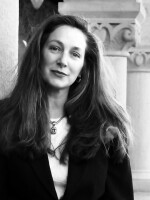

On a continent full of political ferment, Chile enjoys economic stability. The pencil-thin country at the bottom of the world has doubled its Gross Domestic Product, and cut in half its poverty rate with policies that its neighbors increasingly question: aggressive free trade and huge foreign investment.
That current good fortune is also a legacy of a darker past, a past that came full circle with the inauguration of Socialist President Michelle Bachelet earlier this year.
Bachelet, who was once imprisoned by dictator Augusto Pinochet, now occupies Pinochet's old office.
Pinochet has faded from the public scene. At age 90 and in ill health, the former strongman is under house arrest, facing charges of homicide and kidnapping related to his rule, which began in 1973 with a military coup.
But the memory of his regime is still very much alive. More than 3,000 people were either executed or simply "disappeared." An estimated 28,000 others were victims of torture under an iron-fisted regime that lasted 17 years.
Many were taken to Santiago's infamous Grimaldi Villa. Michelle Bachelet, then a young student, and her mother were among them. The former prison is now a memorial honoring the people executed there -- and the more than 200 who were simply never seen again. A granite wall on the grounds bears the victims' names.
"It causes great pain to see these names," says Margarita Romero, whose sister was detained at Grimaldi Villa. "They were made to disappear for a political vision. Today in Chile, we still don't know what happened to many of these people -- and many guilty walk free."
But that brutal dictatorship also laid the foundation for Chile's remarkable growth. Pinochet forced open the economy under the guiding hand of a group known as the "Chicago Boys," disciples of Milton Friedman, a free-market advocate and University of Chicago economist.
"And the model was imposed in the most ruthless imaginable way," says analyst Raul Sohr. "Eventually, it did work, and it does work ... Ever since Chile returned to democracy, a number of free-trade agreements have been signed. Exports have grown exponentially. Last year was the best year in Chilean economic history," Sohr says.
The one thing that has not changed in Chile's transition from dictatorship to democracy is the gap between rich and poor. The richest 20 percent still earns 14 times what the poorest 20 percent does.
Exports of copper, wine, fruit and salmon are fueling economic growth. And everything from water to prisons to highways has been privatized. But the country's devotion to privatization has produced essentially two Chiles, according to analysts. There are hospitals for the rich which are world class, they say, and hospitals for the poor which provide only minimal care.
Anger about the disparity in education spilled over this past June. More than one million high school students took to the streets to protest Chile's Pinochet-era education system. Pinochet's last official act was to release free-market forces on education, which has effectively created a two-tiered system.
The students demanded repairs for dilapidated schools and free lunch for poor students. Bachelet, eager to be seen as the "human face" of Chile's development, earmarked $135 million more for education, ending the protests.
"She expresses this need for more affection within the society," economist Phillip Larrain says. "It's not just productivity and growth, it's also support for the weakest." But even some who support Bachelet are disillusioned with the country's free-market model, denouncing it as "neo-liberalism."
"You can never forget that the neo-liberal system wants you to stop thinking about your rights," says social worker Solidad Puebla. "It's not about rights -- it's about consuming. It's about work, work, work."
Bolivian President Evo Morales offered his economic alternative to thousands of Chilean leftists at a rally in Santiago last spring. To ringing applause, he decried unbridled free trade and declared that Bolivia would assert greater control over its natural resources.
But Washington, D.C., and Wall Street believe that Michelle Bachelet's mix of free trade, foreign investment and social spending is the best answer to Morales and his mentor, Venezuela's Hugo Chavez.
Chile's growth, however, is bittersweet: free market reforms inherited from a dictator. In speaking of confronting the past, Bachelet’s predecessor, President Ricardo Lagos, said: "There can be no tomorrow without a yesterday." What holds true for Chile's political reconciliation would seem to hold true for its economic success.
Copyright 2022 NPR. To see more, visit https://www.npr.org. 9(MDAzMjM2NDYzMDEyMzc1Njk5NjAxNzY3OQ001))






